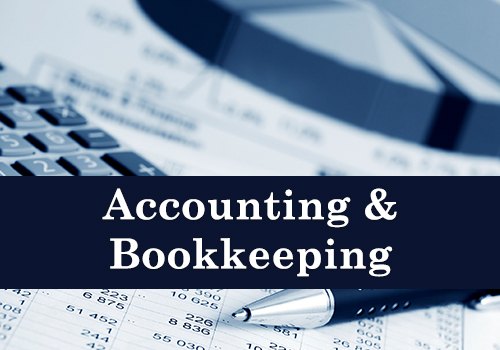Bookkeeping and accounting are crucial for the financial management of a business, but they have distinct roles and functions. Here is an in-depth comparison of the two:

Bookkeeping
Definition:
Bookkeeping is the process of recording daily financial transactions in a systematic manner. It serves as the foundation for the entire accounting process.
Primary Tasks:
- Recording Transactions: Daily recording of all financial transactions, including sales, purchases, receipts, and payments.
- Maintaining Ledgers: Posting debits and credits to respective accounts in the general ledger.
- Managing Receipts and Invoices: Organizing and recording all financial documents.
- Balancing Accounts: Reconciling bank statements to ensure all records are accurate and up-to-date.
- Managing Payroll: Calculating and recording employee salaries, wages, and deductions.
- Handling Petty Cash: Managing small cash transactions and ensuring they are accurately recorded.
Tools Used:
- Manual Systems: Physical ledgers and journals.
- Software: QuickBooks, Xero, Tally, FreshBooks, and other bookkeeping software.
Skills Required:
- Basic understanding of financial principles.
- High attention to detail and accuracy.
- Proficiency in bookkeeping software.
Objective:
- To provide accurate and up-to-date financial information necessary for the accounting process.
Accounting
Definition:
Accounting is the process of interpreting, classifying, analyzing, summarizing, and reporting financial data. It uses information provided by bookkeeping to create financial statements and provide insights for decision-making.
Primary Tasks:
- Financial Analysis: Interpreting financial data to provide insights into business performance.
- Preparing Financial Statements: Creating balance sheets, income statements, cash flow statements, and statements of shareholders’ equity.
- Tax Preparation: Ensuring compliance with tax laws and preparing tax returns.
- Auditing: Examining financial records to ensure accuracy and compliance with regulations.
- Budgeting and Forecasting: Helping businesses plan for the future by creating budgets and financial forecasts.
- Advisory Services: Providing strategic advice on financial decisions, investments, and risk management.
Tools Used:
- Software: Advanced accounting software like SAP, Oracle Financials, Microsoft Dynamics.
- Frameworks and Standards: GAAP (Generally Accepted Accounting Principles), IFRS (International Financial Reporting Standards).
Skills Required:
- Advanced knowledge of accounting principles and standards.
- Analytical and critical thinking skills.
- Strong proficiency in accounting software.
- Knowledge of tax laws and regulations.
Objective:
- To provide a comprehensive understanding of the financial health of the business and support strategic decision-making.
Key Differences
- Scope:
- Bookkeeping: Focuses on recording financial transactions.
- Accounting: Involves analyzing, interpreting, and reporting financial data.
- Complexity:
- Bookkeeping: More straightforward and transactional.
- Accounting: More analytical and requires a deeper understanding of financial principles.
- Output:
- Bookkeeping: Produces raw data (transaction records).
- Accounting: Produces financial statements and insights.
- Decision-Making:
- Bookkeeping: Provides data but does not typically involve decision-making.
- Accounting: Provides analysis and insights that aid in decision-making.
- Educational Requirements:
- Bookkeeping: Generally requires basic knowledge of financial principles and proficiency in bookkeeping software.
- Accounting: Requires a higher level of education, such as a degree in accounting or finance, and often certification (e.g., CPA).
- Frequency of Tasks:
- Bookkeeping: Daily recording of transactions.
- Accounting: Periodic analysis and reporting (monthly, quarterly, annually).
Detailed Comparison Table
| Aspect | Bookkeeping | Accounting |
|---|---|---|
| Definition | Recording of daily financial transactions | Interpreting, analyzing, and summarizing financial data |
| Primary Tasks | Transaction recording, ledger maintenance, reconciliation | Financial analysis, statement preparation, auditing, advisory |
| Tools Used | QuickBooks, Xero, Tally | SAP, Oracle Financials, Microsoft Dynamics |
| Skills Required | Basic financial knowledge, attention to detail | Advanced accounting knowledge, analytical skills |
| Objective | Accurate record-keeping | Comprehensive financial analysis and decision support |
| Complexity | Simple, transactional | Complex, analytical |
| Output | Raw transaction data | Financial statements, insights |
| Decision-Making Role | Limited | Significant |
| Educational Requirements | Basic financial knowledge | Degree in accounting/finance, CPA |
| Frequency of Tasks | Daily | Periodic (monthly, quarterly, annually) |
Conclusion
While bookkeeping and accounting are interrelated, they serve distinct roles in managing a business’s financial health. Bookkeeping provides the raw financial data through meticulous record-keeping, while accounting uses this data to analyze and provide insights for strategic decision-making. Both functions are essential for accurate financial management and compliance, contributing to the overall success of a business.
